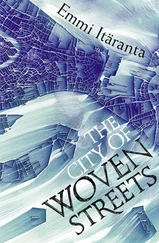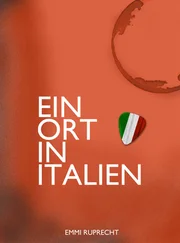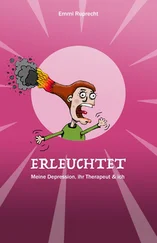As her short figure drew away, I knew I wouldn’t see any more villagers on the road among the trees surrounding the house.
The blade scratched the paint and revealed a light wooden surface below. The line I had just scraped down started the sixth row of marks. I pushed the knife into a sheath that didn’t fit, but was still better than no sheath at all, and placed it in my pocket, just like I had done each morning for the past five weeks.
I had not spoken to anyone after the day when the baker’s son had turned his back on me and walked out of the gate without looking back. Each morning I had found the tray on the steps, and occasionally I had seen a glimpse of a blue uniform, but I hadn’t had the courage to speak again to the soldiers.
Only when the boundaries of life are fragile and close, the aching need to hold on to them becomes clear.
Every morning and evening I would still switch both message-pods on. There is nothing more persistent than hope: even after I imagined I had completely banished the wish that the light on one of them would be flashing, it would flicker in me, and again I had to shove it into the darkness where it would have no space to live or breathe. Every time the lights of the message-pods remained off, my heart would beat a little heavier. But it only lasted a moment, and then my captivity was again opaque mist in which I took one step at a time, not knowing when the view would grow clear or what I would find ahead.
My days were filled with trying to find food in the garden and storing what water I could. The taps in the house had turned unpredictable: sometimes there was water, sometimes there wasn’t. When I wasn’t digging up root vegetables or filling skins and pots, I was making futile guesses of what might be happening in the outside world. I didn’t know what was going on in the village, where around the continent battles were taking place or if the routes to Xinjing were clear. For all I knew, Xinjing might have burned to ground, and the news wouldn’t have reached me. Maybe even the village wasn’t there any longer. Perhaps all that remained were this house and garden, the trees bowing in the wind and the sand road flowing towards the village, the coarse sides of the fells and the sky beyond.
Maybe my mother was there no more. Maybe there was no more Sanja.
There were moments when the muteness of the house, the stillness of my life enclosed within its walls threatened to lock my footsteps entirely, until I felt as if I was turning into stone. First my feet would lose their flexibility, their skin would little by little be tinted rain-grey and harden, until they would no longer bend in the knees or ankles, and I’d have no strength to lift them. Unable to take a step, I would watch the porous substance of rock spread its way in me, disease-like, solidifying my hips and sides and chest, dripping leaden into my fingertips and palms, chaining my wrists and elbows into place. The last to petrify would be my face: the eyelids would remain open, and I would feel my eyes slowly grow dry without being able to blink, listening to the echo of my heart within its shell of stone, until even that would eventually fade.
I had to evade the thoughts that had the power to freeze me. I could not stop, not yet.
I went to pick up the food tray of the day from the steps and brought it into the kitchen, where I emptied the food onto the table. The supply was modest today: a handful of amaranth, a pouch of sunflower seeds. The soldiers had taken notice that the crop in the garden was ripening. After a scanty breakfast I took the tray back to the veranda and went to the bathroom to wash. I got undressed and stepped under the shower. Instead of a burst of cold water, only a few drops leaked from the shower head. I waited a short while, turned off the tap and turned it on again. The water pipe wheezed for a moment and a low, metallic screech sounded from somewhere deep, as if the pipe was turning over. Eventually water gushed forth. I applied foaming soapwort all over myself quickly, because I was already used to the water supply in the house being irregular these days. I thought of the surface of the spring and the white mark which had loomed right below it when I had gone to the fell for the last time, but I felt my blood turning heavy again and banished the thought. At least I still had water at my disposal. Even as a marked criminal I didn’t need to walk in dirty clothes or spend weeks without bathing. Even in my captivity I had more than most villagers in their freedom.
I still didn’t understand the reason for this.
After getting dressed I went to sweep the stone slabs leading to the teahouse. The night dew that clung to the grass brushed my feet through the lattices of my sandals. The day was cloud-wrapped, but did not ooze with the humidity of rain. I collected the leaves fallen on the path into a pile by the corner of the teahouse, selected a handful to scatter on the stones and carried the rest into the compost behind the hut, taking care not to go too close to the border of my invisible prison.
The berries were red-veined and plump on the gooseberry bushes by now, pulling the branches low with their weight. I picked up a bowl from the veranda. Gooseberries pattered against the plastic, calming as rain; their juice burst sweet into my mouth and their seeds crunched between my teeth. As I was carrying my hoard of berries towards the house, my fingers tender from the prickling bushes, I saw a helicarriage approaching on the road. At first I didn’t pay much attention to it. Soldiers would come and go around the house, mostly by foot, but occasionally a helicarriage would bring them and take them away. The change of guard was usually unnoticeable: some moments I could almost pretend that there was nothing out of the ordinary going on in my life, because the soldiers kept their presence mostly invisible as long as I didn’t try to cross the line.
This helicarriage, however, stopped under the seagrass shelter for visitors’ vehicles, which none of the previous ones had done. I put the berry bowl down on the edge of the veranda. A tall man stepped from the carriage. He walked through the gate into the garden, stopped in front of me and bowed.
I did not bow back.
‘Commander Taro,’ I said. ‘What have I done to deserve this unexpected honour?’
Taro stepped closer, so close I could see my own reflection in his hard, black eyes despite the mesh of his insect hood. My muscles stirred, wanting to step back, but I forced myself to stand still. He was measuring me with his gaze. I did not lower mine.
‘I can see you haven’t changed since our last meeting, Miss Kaitio,’ Taro said. The corners of his mouth twisted into a smile that made me think of knives and sabres and something even sharper. ‘What do you think of our hospitality?’ He waved his hand, as if catching the house and garden in his fist. ‘I think we have been extraordinarily kind: there is plenty of space for exercise, food and water are regularly delivered. Few prisoners enjoy such luxury.’
‘I can’t deny I have wondered why I’ve been given such privileges,’ I replied. ‘I presume you have come to enlighten me.’
Taro seemed amused, but the expression was like a thin mask placed over his features. Nothing moved behind his eyes.
‘It would be a shame to let your special skills go unused, Miss – I mean Master Kaitio,’ he said. ‘So I’m suggesting we have this conversation over a cup of tea. Would you be so kind and perform a ceremony to honour my visit?’
Despite his formally polite tone I knew it was not a request.
‘Give me fifteen minutes, Commander Taro, so I can prepare everything. There are no sweets,’ I remarked without trying to soften the tone of my voice. ‘You will accept my apologies for that, I expect.’
Читать дальше
Конец ознакомительного отрывка
Купить книгу












